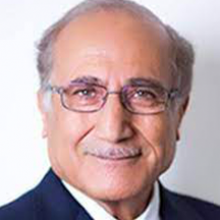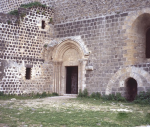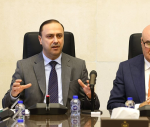You are here
Turkey and the Arabs
Apr 04,2016 - Last updated at Apr 04,2016
Throughout my political career I met, in the company of the late King Hussein and HRH Prince Hassan, seven Turkish prime ministers.
My first encounter was with Suleyman Demirel, in 1980, when Turkey was penniless and on fire as a result of daily fights between the Islamists under Necmettin Erbakan and the government troops.
I was later destined to meet with Bulent Ecevit, Tansu Ciller, Mesut Yilmaz, Erbakan, Turgut Ozal and Recep Tayyip Erdogan when he was the mayor of Istanbul.
Last week, I met with Turkish Prime Minister Ahmet Davutoglu who was part of a group of politicians and opinion makers during an event organised by the Arab Thought Forum and the Turkish embassy.
The harvest of the meeting was a well-developed academic framework, in which the prime minister explained his country’s foreign policy and made references to its domestic policy.
Three guiding principles govern Turkey’s relations with neighbours: zero conflicts with neighbours; strict adherence to the principles of democracy and public choices through voting; inclusion of all people, with no exception, important in a country that has a big number of large ethnicities, like Circassians, Uzbeks, Arabs, Kurds, Armenians and others.
In following these principles, Turkey does not differ from Egypt. Nor does it support the Muslim Brotherhood movement, but Turkey is opposed to toppling a democratically elected president by a military coup.
Turkey differed with Damascus after giving President Bashar Assad’s regime a grace period of six months to come to terms with his revolting people.
Instead, Assad, belonging to the Alawite sect, heeded Iran’s advice to use the army to quell the people’s uprising.
Davutoglu said that Iran accuses Turkey of being a secular state disguised as a Muslim one, unlike Iran which is an Islamic republic.
He pointed that Iran never extended help to other Muslim states, but was present every time there was a conflict, fanning its flames.
Negotiations with Israel, he also said, are yet to produce an agreement, but the red lines are Al Aqsa Mosque, Jerusalem and the continuation of the siege on Gaza.
Turkey’s relations with Jordan are strong and have a promising future. Both share common borders with the war-torn Syria and Iraq, and both have endured a lot as a result.
Davutoglu did not discuss relations with Russia and did not explain Turkey’s position on the stalled peace negotiations between Palestine and Israel.
Yet, he strongly emphasised the need for a political solution that should maintain the integrity and unity of both Syria and Iraq.
Davutoglu is an eloquent politician. In his elegant way, he makes one see Turkey’s point of view, although one may differ with it.
Turkey is a key regional player, and we should engage its political leaders all the time.
The writer, a former Royal Court chief and deputy prime minister, is a member of Senate. He contributed this article to The Jordan Times.












